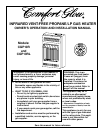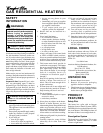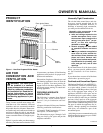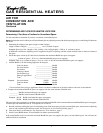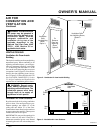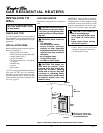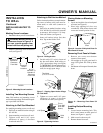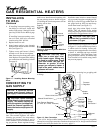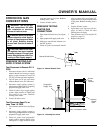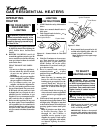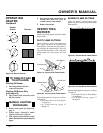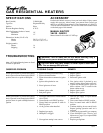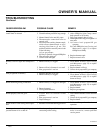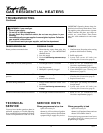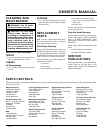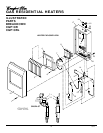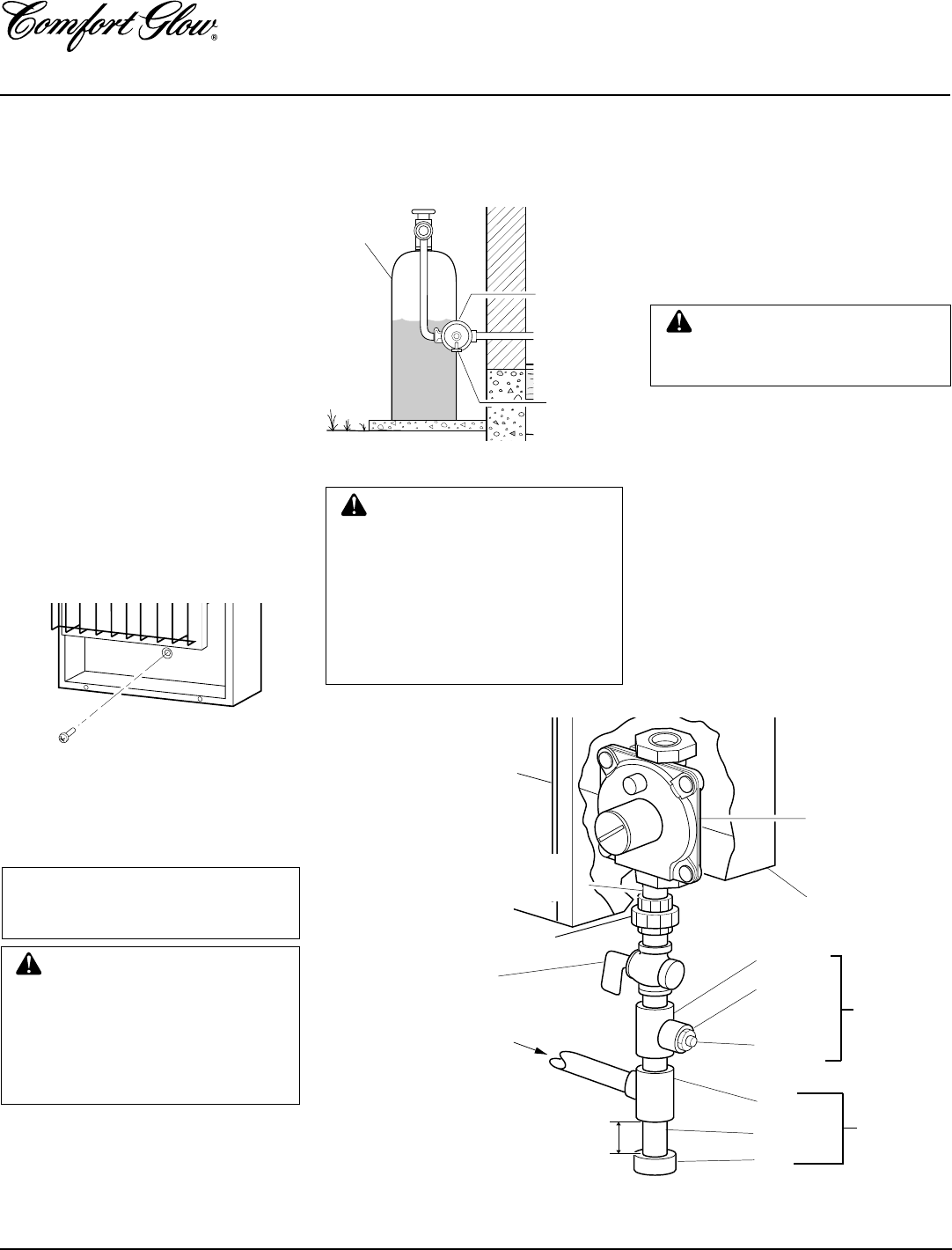
8
103548
GAS RESIDENTIAL HEATERS
IMPORTANT:
Hold pressure regulator with wrench when connecting it to gas piping and/
or fittings.
Figure 13 - Gas Connection
* An A.G.A. design certified manual shutoff valve with 1/8" NPT tap is an acceptable
alternative to test gauge connection. Purchase the optional A.G.A. design certified manual
shutoff valve from your dealer. See Accessory, page 12.
Tee Joint
Reducer
Bushing to
1/8" NPT
1/8" NPT
Plug Tap
Tee
Joint
Pipe Nipple
Cap
Heater
Cabinet
Pressure
Regulator
3/8" NPT
Pipe Nipple
Ground Joint Union
From External Regulator
(11" W.C. to 14" W.C. Pressure)
Manual Shutoff Valve *
Sediment
Trap
Test
Gauge
Connection *
3" Minimum
CONNECTING TO
GAS SUPPLY
Figure 12 - External Regulator With Vent
Pointing Down
Propane/
LP Supply
Tank
Vent
Pointing
Down
External
Regulator
Figure 11 - Installing Bottom Mounting
Screw
4. If installing bottom mounting screw
into hollow or solid wall, install wall
anchor. Follow steps 1 through 5 under
Attaching To Wall Anchor Method, page
7.
If installing bottom mounting screw
into wall stud, drill hole at marked
location using 9/64" drill bit.
5. Replace heater on wall.
6. Insert bottom anchor screw through
back panel into bottom anchor or drilled
hole (see Figure 11).
7. Tighten screw until heater is firmly
secured to wall. Do not over tighten.
Note:
Do not replace front panel at this
time. Replace front panel after making
gas connections and checking for leaks
(see page 9).
INSTALLING
TO WALL
Continued
NOTICE: A qualified service
person must connect heater to
gas supply. Follow all local codes.
CAUTION: Never connect
heater directly to the propane/LP
supply. This heater requires an
external regulator (not supplied).
Install the external regulator be-
tween the heater and propane/LP
supply.
The installer must supply an external regu-
lator. The external regulator will reduce
incoming gas pressure. You must reduce
incoming gas pressure between 11 and 14
inches of water. If you do not reduce incom-
ing gas pressure, heater regulator damage
could occur. Install external regulator with
the vent pointing down as shown in Figure
12. Pointing the vent down protects it from
freezing rain or sleet.
CAUTION: Use only new,
black iron or steel pipe. Inter-
nally-tinned copper tubing may
be used in certain areas. Check
your local codes. Use pipe 3/8"
diameter or greater to allow
proper gas volume to heater. If
pipe is too small, undue loss of
pressure will occur.
Installation must include a manual shutoff
valve, ground joint union, and plugged 1/8"
NPT tap. Locate NPT tap within reach for
test gauge hook up. NPT tap must be up-
stream from heater (see Figure 13).
Apply pipe joint sealant lightly to male
threads. This will prevent excess sealant
from going into pipe. Excess sealant in pipe
could result in clogged heater valves.
CAUTION: Use pipe joint
sealant that is resistant to liquid
petroleum (LP) gas.
Install sediment trap in supply line as shown
in Figure 13. Locate sediment trap where it
is within reach for cleaning. Locate sedi-
ment trap where trapped matter is not likely
to freeze. A sediment trap traps moisture
and contaminants. This keeps them from
going into heater controls. If sediment trap
is not installed or is installed wrong, heater
may not run properly.



